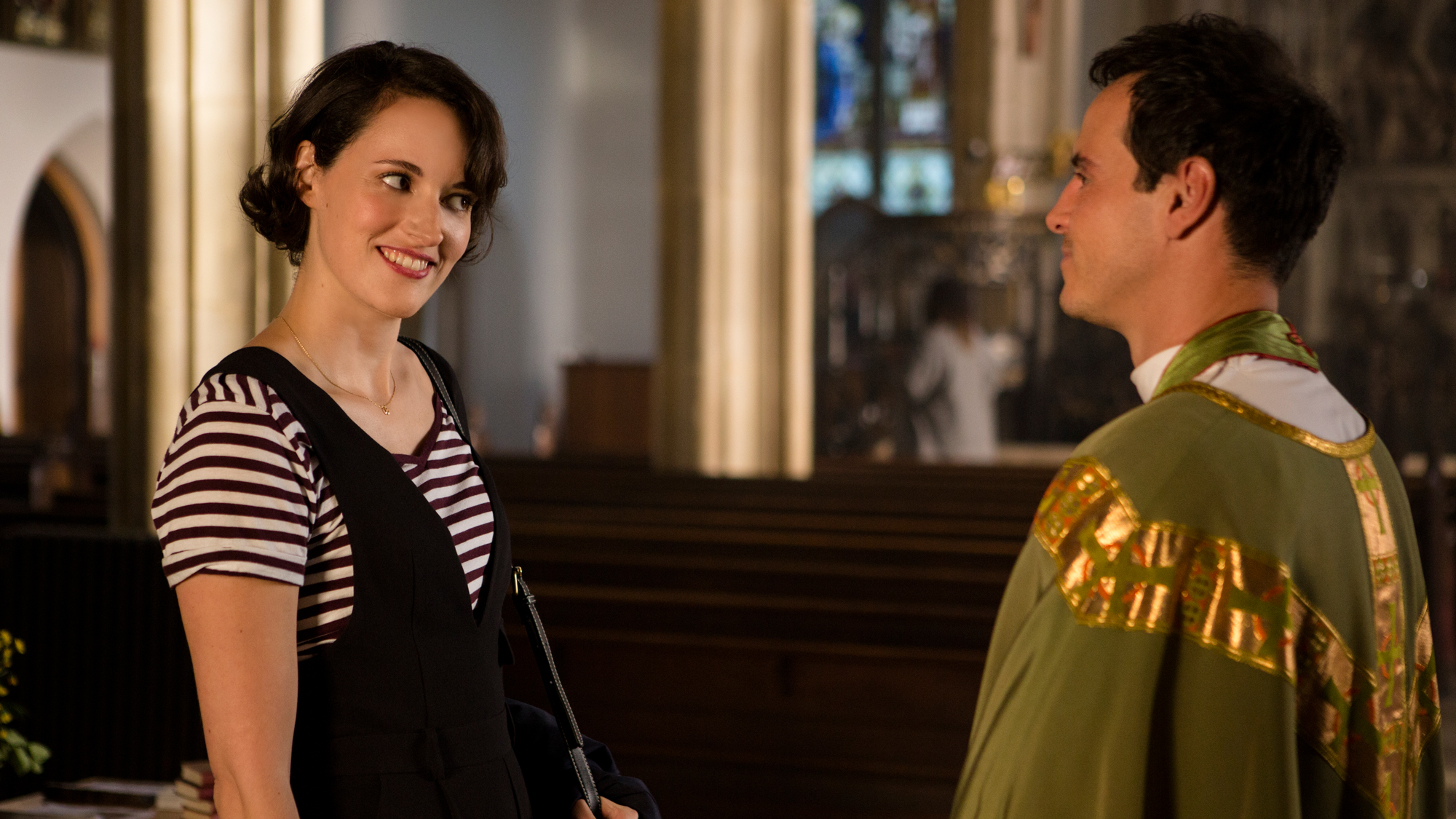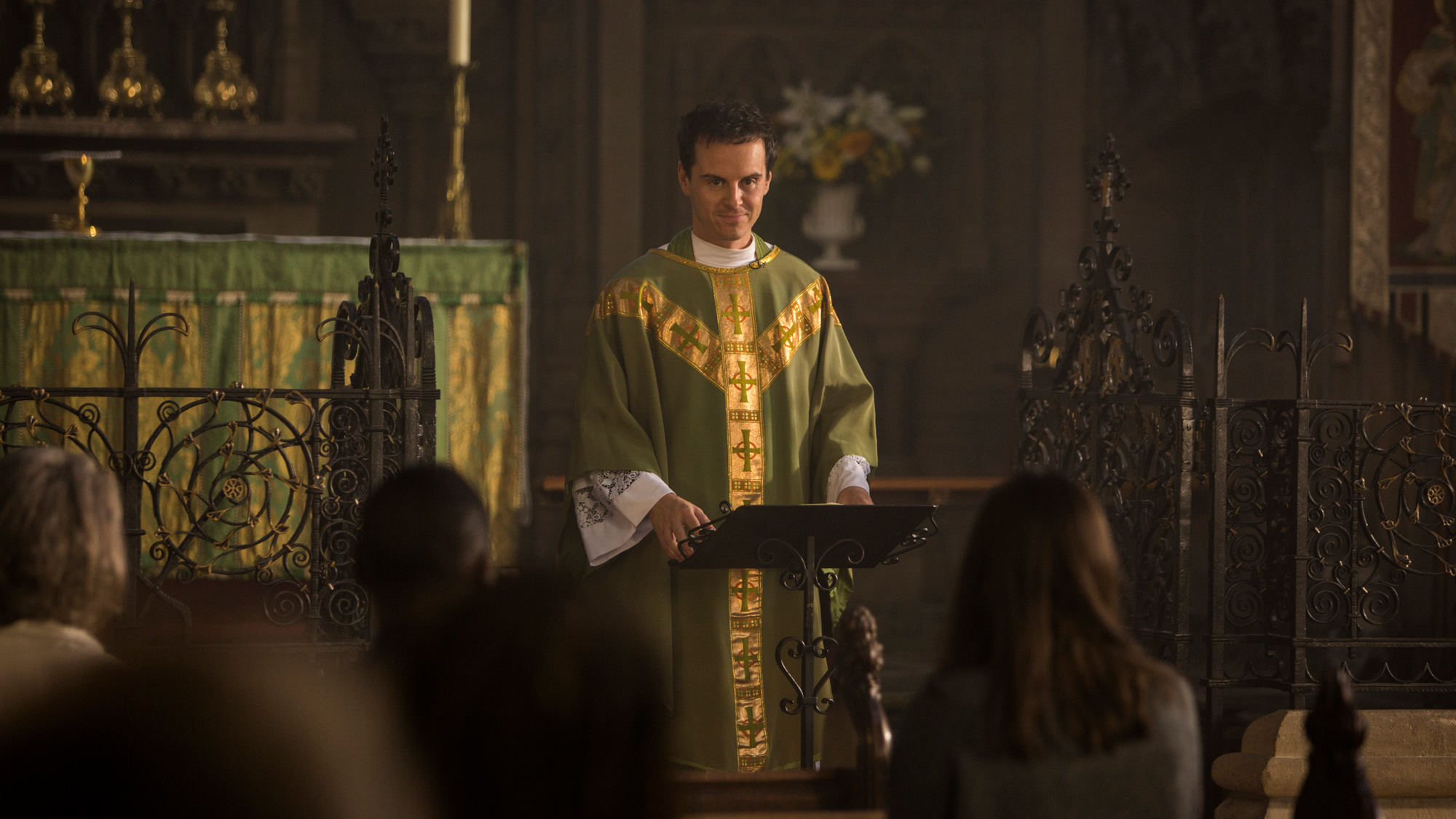7 Reasons to Watch Amazon Prime's Fleabag Now
The best new show on TV packs a ton of punch into its dialogue and story.
I never expected to recommend a show that's on Amazon Prime Video, since I’ve previously batted 0.000 in terms of enjoying the streaming service's exclusives. But that pattern reversed course this past week as I devoured the show Fleabag, which Amazon Prime co-presents with the BBC.

And even though I constantly feel physically incapable of binge-watching a show, I ran through Fleabag in less than five days, an experience so great I had to share it with you. Here are the top seven reasons to stream Fleabag.
Meet Phoebe Waller-Bridge, one of the top new creators
Vulgar to a point that passes shock value, firing nuclear-level truth bombs, and shattering taboos in a near-casual way, Phoebe Waller-Bridge's show Fleabag — she's the creator, writer and stars as the titular character — is a great introduction to one of the biggest rising stars today.
If the show's style or her voice seems familiar, that's because Waller-Bridge has already been immersing herself in pop culture, having voiced the droid L3-37 in Solo: A Star Wars Story, and serving as writer and producer on the critically acclaimed series Killing Eve, which takes the extra-ness of Fleabag but places it inside the characters of a European spy drama.
Oh, and sorry, we can't answer the question "What is Fleabag's name?" Just a small heads-up about Waller-Bridge's character Fleabag: It's OK to spend the show wondering what her actual name is. There's no explanation provided, and Waller-Bridge told Decider that Fleabag is her actual nickname in her own family, though she followed that by saying the show isn't autobiographical.
Whether the characters are allied or at odds, their ideas and language bounce back and forth like tennis balls zigging and zagging on the clay courts of the French Open.
For those in need of a strong female lead with depth and dimension and … dirt
While you may hear Fleabag hyped as a show with women behaving badly, a concept that Amy Schumer pushed until she fell off the radar, there’s more to the show than that. The titular Fleabag and her sister Claire are more than just the vulgarity that will draw audiences in, but they're also the kind of deeply written, seriously flawed, and incredibly relatable (sometimes) female characters that fans of Waller-Bridge's other big show, Killing Eve, have come to expect.
Fleabag, at times, reminded me of writer Roxane Gay's non-fiction book Bad Feminist, a collection of essays wherein the author expresses how her lived experience can feel contrary to the expectations of modern feminism. In one Season 2 scene, especially, when talking about her feelings about her own body, Fleabag exposes one of these fears, and makes herself more relatable in the process.
MORE: 33 Best Shows on Netflix
Phoebe Waller-Bridge understands voice in TV casts
Many TV shows with decent writing suffer from making everyone sound the same. It's why I gave up on Shonda Rhimes' Scandal after a few episodes. While some offices are filled with people who talk the same and walk the same, that's not compelling TV.
Fleabag rattles off words with the rate of a touch typist, but her father and godmother speak in a more deliberate and less trustworthy tone that feels as if each word has been chosen out of fear of betraying themselves. All of these characters have their own frustrated bitterness, but each line from Martin, Claire's sleazy husband, is delivered with a creepy, manipulative tone that will leave you thinking about pouring another drink or taking a shower.
Brilliant, punchy dialogue
When Fleabag chats with either her sister Claire or the men in her life who can keep up with her, the show delivers conversations that feel like sport. Whether the characters are allied or at odds, their ideas and language bounce back and forth like tennis balls zigging and zagging on the clay courts of the French Open.
Somehow, things get better with Fleabag's monologue-esque confessionals, where she breaks the fourth wall and talks straight to the camera, constantly delighting and even tugging at the heartstrings. Waller-Bridge has this thing she does, where she just keeps talking at an impressively brisk pace and cadence; it does feel and sound like she's thinking out loud, which is both charming and impressive.

Whether it's just a brisk aside or a truth-bomb-laden diatribe, Fleabag just says all the things we're too uncomfortable to say.
Crushingly real depictions of relationships in disarray
Fleabag's family is a fractured one, with death at its core, and those tenuous connections repeatedly barely survive each episode. It's reminiscent of Six Feet Under in this way, except that Fleabag’s characters’ actions are slightly less destructive.
As the token black sheep of her family, Fleabag's got to deal with bad comparisons. In particular, she's under the shadow of her far-more successful sister Claire, who's a big deal in law and has a husband, which pale in comparison to Fleabag's sparsely populated cafe and recurring rogue's gallery of bad boyfriends. Whenever Fleabag talks to her father (played by Bill Patterson with a great, delicate touch), she even frustrates him to the point where he has to give those speeches about his disappointment.
I won't even get into Claire and Martin's marriage, though — that's a bag of snakes you need to see for yourself.
Olivia Colman pushes the limits of despicable behavior to amazing effect
While Fleabag may come across at times as uncaring, mean-spirited and petty, her godmother — played by Olivia Colman — is the show's true villain. At first, you can't tell how bad Colman's character is, as she only starts out being a bit passive-aggressive, which is one of the more universal traits of the show.
But soon, you start to root for Fleabag's each and every transgression against her evil godmother (who is unnamed, like many characters in the show). And don't worry: that's the point. According to an interview with the show's producer Lydia Hampson, Colman told Waller- Bridge that she'd "love to play a real b***h," to which the show-runner replied, "I've got it!"
Easily bingeable with equally watchable seasons
You're not making a major commitment with Fleabag, either. Fleabag's two seasons are a neat six episodes a piece, and none run longer than 30 minutes. In total, you'll be finished with the entire show in 5 hours and 7 minutes, meaning that you can watch the entirety of Fleabag's misadventures in between two meals.
But even better, if you ask me, each season feels like a great book or movie. While Season 2 expands on the story of Season 1, and ties into its events, it tells a separate story.
And in even better news – the second season doesn't feel unnecessary, or (like many shows) that it's trying to stretch the premise of the original for the sake of creating content to feed a hungry streaming service and audiences who want more of the same.
Sign up to get the BEST of Tom's Guide direct to your inbox.
Get instant access to breaking news, the hottest reviews, great deals and helpful tips.

Henry is a managing editor at Tom’s Guide covering streaming media, laptops and all things Apple, reviewing devices and services for the past seven years. Prior to joining Tom's Guide, he reviewed software and hardware for TechRadar Pro, and interviewed artists for Patek Philippe International Magazine. He's also covered the wild world of professional wrestling for Cageside Seats, interviewing athletes and other industry veterans.
